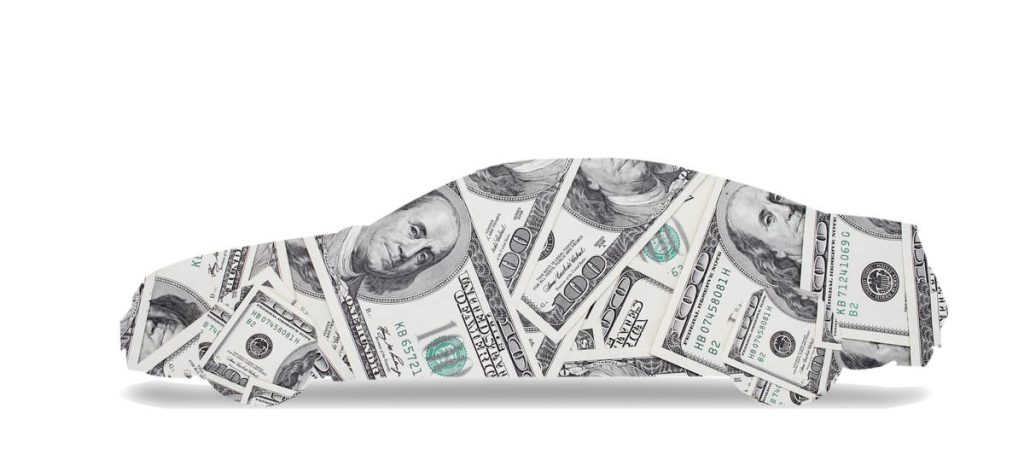Auto shoppers looking to finance their next vehicles have fewer choices of lenders since a slew of banks pulled out of what’s known as the indirect market—making car loans through dealerships other third parties.
That, plus still sky high sticker prices, has created a bit of desperation for some consumers who can’t swing a vehicle purchase without financing the cost.
Indeed, some are so desperate to qualify for car loans the number of those submitting fake pay stubs or otherwise overstating their incomes is on the rise, according a research by Informed.IQ, an artificial intelligence, machine learning-based company that verifies loan applications for lenders.
At the same time, Tenet.com, an online lender specializing in financing for electric vehicles is making it easier for consumers to own an EV while also playing a strong defense against fraud.
Why are banks reducing their exposure to auto lending?
“In general, banks are having a lot of deposit outflows,” said
Alex Liegl, Tenet co-founder and CEO in an interview. “So they have less available for lending and that’s just because Treasury rates are going up and a lot of their customers are porting over to MMA or just directing to treasuries. So a lot of these banks are pruning how much money is going out the door. So auto lending is one of the natural ways to do it.”
The exit from indirect auto loans by banks including Citizens Financial Group Inc. and KeyCorp is one trigger for fraud on the part of loan applicants, according to Jessica Gonzalez, director of lending strategies and account management for Informed.IQ.
“We are seeing across the industry fraud rates do increase. Whenever the market tightens that’s going to be expected,” said Gonzalez in an interview.
It’s also connected with where an applicant lives.
Informed.IQ recently released two lists—one with states ranked in order of percentage of loan applications where fake pay stubs were submitted and the other ranking states by the incidence of applicants overstating their incomes by more than 10%.
Washington, D.C. topped the first list with 1.99% of auto loan applicants submitted fake pay stubs. It was followed by Georgia with 1.5% and North Carolina with 1.37%.
1. DC: 1.99%
2. GA: 1.50%
3. NC: 1.37%
4. MI: 1.34%
5. AL: 1.23%
6. DE: 1.15%
7. WI: 1.11%
8. UT: 1.09%
9. SD: 1.08%
10. NV: 0.98%
Topping the list of states or territories where incomes were overstated by more than 10% was Puerto Rico at 33.33%, followed by Michigan at 17.4% and Maine at 16.94%.
1. PR: 33.33%
2. MI: 17.40%
3. ME: 16.94%
4. LA: 16.75%
5. WI: 16.72%
6. AL: 16.15%
7. DE: 16.11%
8. PA: 16.00%
9. RI: 15.98%
10. MS: 15.88%
There is some correlation between the rate of submitting fraudulent information and which state an applicant resides.
“If you see there, Puerto Rico, as you know, from the Bureau of Labor Statistics, you see that they are more likely to be gig workers and so you will also see a correlation between lenders that do accept other sources of income such as proof of income for pay stubs is really easy to create fraudulent,” said Gonzales. “But if they open up their credit policies and accept the types of Zelle and Venmo then most bank statements and other forms of documentation to prove those incomes, you’re less likely to just see the correlation between gig workers and fraudulent income.”
Gonzales said there’s also a strong correlation to fraudulent submissions to those who are self-employed because most lenders will require immediate proof of income and much more documentation if you’re self self employed.
A strong digital presence and ease of creating synthetic indentifcation and other documents are other important contributors to the rise in false income submissions, Gonzalez pointed out.
Ironically, those with lower credit scores, in the so-called subprime group, are least likely to misrepresent their incomes because lenders require more robust documentation, Gonzales said.
Average payments on new car loans continue to rise. According to credit ratings company Experian, the average monthly payment during the first quarter of this year was $725, up 11.5% year-over-year.
For many consumers, that’s just too rich a nut to make every month. As automakers look to convert their product portfolios to battery electric vehicles, which, right now, cost more than internal combustion powered cars and trucks, those who aspire to switching from gasoline to electricity are further challenged.
That’s why Tenet.com has come up with a way to make EVs more accessible, in large part, by a creative use of incentives and time shifting.
“What are the credits and rebates they are specifically eligible for, given their location, what their income is, what state etc, they’re in, and that’s up to 20%,” said Liegl. “What we allow on average the most deferred amount, as you can imagine, is $7.5 thousand, which is the federal tax credit and it’s really meant to allow somebody to take advantage of the credit by immediately making the car more affordable, rather than getting it at some point in the next 12 months and and actually not literally impacting the price tag of the car.”
Using those methods, Liegl says Tenet can reduce an EV-buyer’s monthly payment by $150-$200.
Just as banks and other lenders can be victims of fraudulent loan applications, Liegl says Tenet is just as vulnerable, but ready to fight back, saying, “we do take a lot of care in terms of our fraud detection, and I think it’s just a fact of life that anything touching lending, you will have to always be dealing with fraud and identity theft and any falsification of documents.”
Read the full article here















